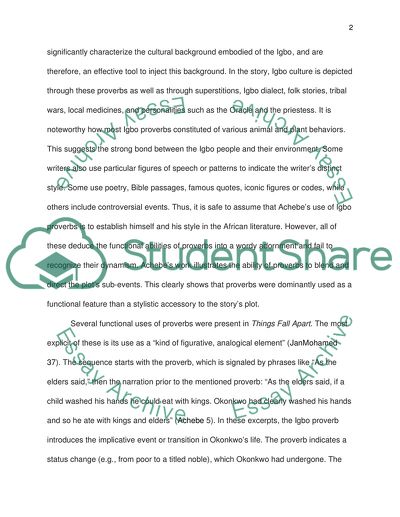Cite this document
(“Proverbial Features of Chinua Achebes Things Fall Apart: A Function Essay”, n.d.)
Retrieved from https://studentshare.org/literature/1586666-proverbial-features-of-chinua-achebes-things-fall-apart-a-function-over-style-argument
Retrieved from https://studentshare.org/literature/1586666-proverbial-features-of-chinua-achebes-things-fall-apart-a-function-over-style-argument
(Proverbial Features of Chinua Achebes Things Fall Apart: A Function Essay)
https://studentshare.org/literature/1586666-proverbial-features-of-chinua-achebes-things-fall-apart-a-function-over-style-argument.
https://studentshare.org/literature/1586666-proverbial-features-of-chinua-achebes-things-fall-apart-a-function-over-style-argument.
“Proverbial Features of Chinua Achebes Things Fall Apart: A Function Essay”, n.d. https://studentshare.org/literature/1586666-proverbial-features-of-chinua-achebes-things-fall-apart-a-function-over-style-argument.


